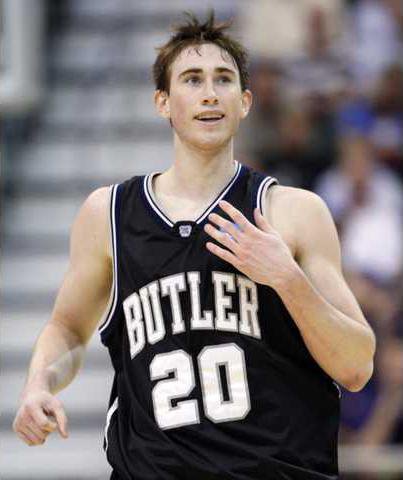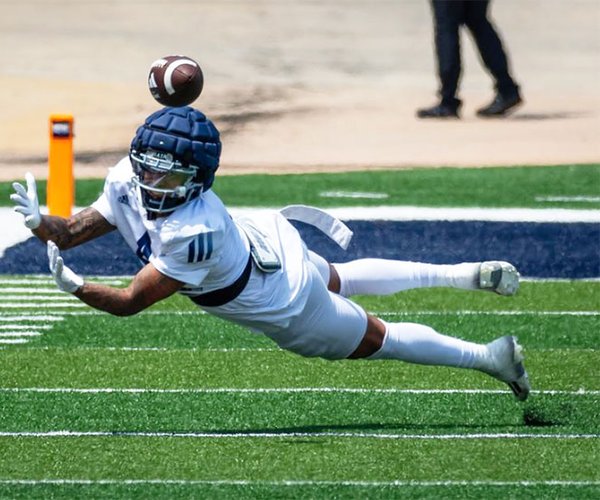INDIANAPOLIS — Having a hometown team play in the Final Four has Indianapolis buzzing, but Butler's Cinderella run — and the proximity of two other competitors — could hurt the bottom line from one of the NCAA's biggest events.
Civic leaders and the NCAA say they expect the tournament to pour more than $50 million into the local economy, but economists say the city shouldn't bank on it just yet. The Butler campus is just seven miles from Lucas Oil Stadium, where the games will be played, and Michigan State and West Virginia are less than seven hours away by car.
Even Duke is about a 10-hour drive, which means more fans could make shorter trips out of this weekend's games — leaving less time to spend money in Indianapolis.
"The whole key to economic impact is getting people to stay overnight. Once that goes away, then you lose that hotel stay, you lose that dinner and breakfast exposure," said Daniel Rascher, president of California-based SportsEconomics, which has studied the economic impact of four Final Four tournaments.
One study, which included the 1997 Indianapolis-hosted Final Four, found that many Kentucky fans drove in for the game, then returned home or stayed one night instead of the four nights Final Four fans typically stay, Rascher said. Other studies of large sporting events have had similar results, he said.
Rascher said having Butler in the Final Four could cut the economic infusion by 10 percent to 15 percent. The nearness of Michigan State and West Virginia could take another 5 percent to 10 percent out of the revenue pie, he said.
"It starts to add up," Rascher said. "This is an anomaly, to have three teams that are so close."
City tourism officials say they aren't concerned. They say having the hometown underdog in the game, plus a new venue in Lucas Oil Stadium, will only boost excitement and attendance.
"We're thrilled that Butler's in," said Don Welsh, CEO of the Indianapolis Convention & Visitors Association. "People want to put some type of perspective on it that it's going to lower attendance. I think just to the contrary. We're probably going to have a surprise bump in terms of people getting on airplanes and flying in."
The NCAA, too, is betting that the excitement over Butler will help the city reach its projections for the weekend.
"It not only embraces the excitement of college basketball, but it does so for the entire local community as well as the region," said Greg Shaheen, senior vice president of basketball and business strategies for the NCAA, which is based in Indianapolis. "The team that everybody's followed, the little engine that could, has turned out to be a big dog, if you will, ironically. So it's a great thing for everyone, and we expect it to be even more popular and even crazier this weekend."
City hotels say they're seeing increased demand for rooms, even from local fans. The Indianapolis Hilton is sold out all weekend and has been for about a year, general manager Jeff Sweet said. The hotel didn't offer any special packages for Final Four fans, though most hotels have four-night minimums for the tournament.
Sweet said even locals without tickets will get in on the excitement by going to city bars.
"There's not going to be falloff," said Sweet, who is also president of the Greater Indianapolis City and Lodging Association.
At Moe and Johnny's, a popular hangout for Butler students and alumni, assistant manager George Hoit said he expects the restaurant and bar to be a "madhouse" this weekend.
Rascher stands by his prediction of a lower economic boost for the city overall. But he concedes that the benefits of having all eyes on Butler and Indianapolis for the weekend could compensate for some of the difference in the long run.
"You will end up getting this exposure that's a little bit different," Rascher said. "People will be thinking about Butler after the game. They'll be saying, 'Butler's in Indianapolis, let's think about Indianapolis,' for people potentially going to college. So, there's kind of a positive effect after the fact that's a bit harder to measure."





